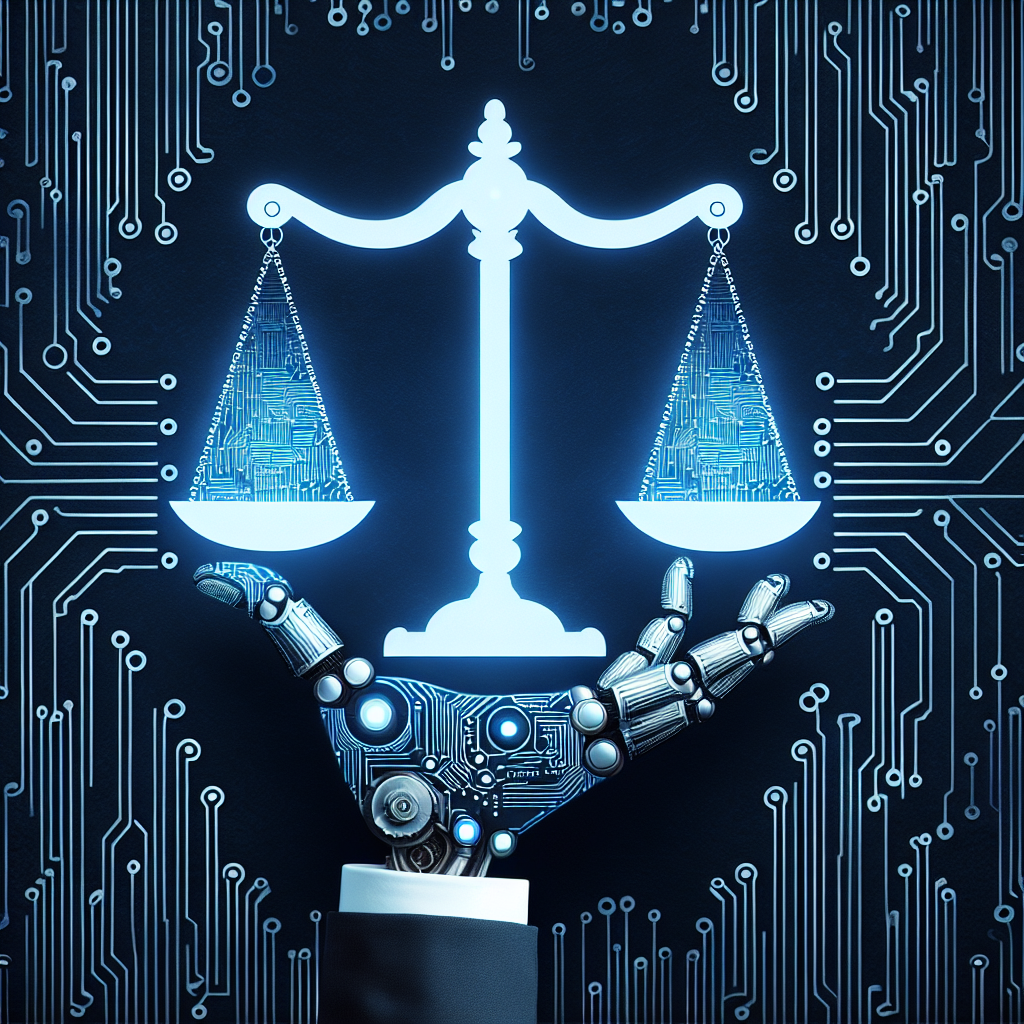The Potential of AI in Legal Analytics and Decision-making
Artificial Intelligence (AI) has been making waves in various industries, revolutionizing the way businesses operate and make decisions. One of the areas where AI has the potential to have a significant impact is in the field of law. Legal analytics and decision-making are critical aspects of the legal profession, and AI has the potential to streamline and enhance these processes in ways that were previously unimaginable.
AI in Legal Analytics
Legal analytics involves the use of data analysis and statistical techniques to gain insights into the legal industry and make informed decisions. AI can play a vital role in this process by automating the collection, analysis, and visualization of legal data. By utilizing AI-powered tools, legal professionals can quickly and accurately extract relevant information from vast amounts of data, enabling them to make more informed decisions.
One of the key benefits of using AI in legal analytics is its ability to uncover patterns and trends in legal data that may not be immediately apparent to human analysts. By using advanced machine learning algorithms, AI can identify correlations and relationships in legal data, enabling legal professionals to make more accurate predictions and strategic decisions.
AI can also help legal professionals to stay up-to-date with the latest legal developments and trends. By continuously monitoring legal databases and news sources, AI-powered tools can provide real-time insights into changes in the legal landscape, allowing legal professionals to adapt their strategies accordingly.
AI in Legal Decision-making
In addition to legal analytics, AI also has the potential to revolutionize the way legal decisions are made. Traditionally, legal decisions have been made based on precedent, legal principles, and expert judgment. However, AI can augment and enhance these decision-making processes by providing legal professionals with access to vast amounts of legal information and analysis in real time.
By using AI-powered tools, legal professionals can quickly search through vast legal databases to find relevant case law, statutes, and regulations. This can help them to streamline the research process and make more informed decisions based on the most up-to-date legal information available.
AI can also assist legal professionals in predicting the outcomes of legal cases. By analyzing historical case data and applying machine learning algorithms, AI can help legal professionals to assess the strengths and weaknesses of their cases, identify potential risks, and make informed decisions about the best course of action.
Furthermore, AI can help to automate routine legal tasks, such as document review, contract analysis, and legal research. By using AI-powered tools to handle these tasks, legal professionals can free up time to focus on more strategic and value-added activities, such as client counseling, negotiation, and litigation strategy.
FAQs
Q: How can AI improve legal research and analysis?
A: AI can improve legal research and analysis by automating the collection, analysis, and visualization of legal data. AI-powered tools can quickly extract relevant information from vast amounts of data, uncover patterns and trends, and provide real-time insights into changes in the legal landscape.
Q: How can AI help legal professionals make more informed decisions?
A: AI can help legal professionals make more informed decisions by providing access to vast amounts of legal information and analysis in real time. By using AI-powered tools, legal professionals can quickly search through legal databases, predict the outcomes of legal cases, and automate routine legal tasks.
Q: What are some examples of AI-powered tools used in the legal industry?
A: Some examples of AI-powered tools used in the legal industry include contract analysis tools, e-discovery platforms, legal research platforms, and case prediction software. These tools can help legal professionals streamline their workflows, make more informed decisions, and improve the efficiency of their practices.
In conclusion, AI has the potential to revolutionize the way legal analytics and decision-making are conducted. By automating routine tasks, uncovering patterns and trends in legal data, and providing real-time insights into the legal landscape, AI can help legal professionals to make more informed decisions, streamline their workflows, and improve the efficiency of their practices. As AI technology continues to advance, it is likely that its impact on the legal industry will only continue to grow in the coming years.

